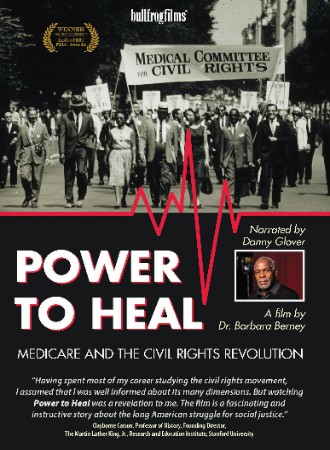
Power to Heal: Medicare and the Civil Rights Revolution 2018
Distributed by Bullfrog Films, PO Box 149, Oley, PA 19547; 800-543-FROG (3764)
Produced by Barbara Berney, Roberta Friedman, and Daniel Loewenthal
Directed by Charles Burnett and Daniel Loewenthal
Streaming, color, 56 mins
College - General Adult
Civil Rights; Healthcare; US History
Date Entered: 11/26/2019
Reviewed by Linda Frederiksen, Washington State University, Vancouver, WAMedicare is the national health insurance program for the aged and disabled in the United States. According to the American Association of Retired People (AARP), there are currently more than 44 million people, or approximately 15% of the total U.S. population, enrolled in the program. Yet, before 1966 when Medicare went into effect, many Americans lacked access to the most basic human rights levels of healthcare. Throughout most of its history, deeply entrenched systems of racial segregation barred African Americans from established medical practices. In the mid-1960’s, along with long-existing disparities in education, transportation, voter registration, and housing, healthcare was also addressed through federal legislation.
Based on David Barton Smith’s 2016 book by the same title, this exceptional public broadcasting documentary casts a critical eye on the damaging consequences of how the interpretation of ‘separate but equal’ healthcare played out not only in the Jim Crow South but throughout the nation. It was only with the passage of the Civil Rights Act of 1964 and 1965 amendments to the Social Security Act that ended these ruinous practices and ushered in Medicare.
Narrated by actor and activist Danny Glover, the film effectively uses archival photographs and video footage, as well as personal interviews, to effectively convey the difficult, often violent, battle that went into the passage of critical legislation forcing hospitals to desegregate. Profiled are key players, including Robert Kennedy, Lyndon Johnson, the American Medical Association (AMA), and others, as well as the ordinary men and women involved in the struggle for a not always widely acknowledged outcome of the civil rights movement.
Recommended for courses in healthcare, civil rights, and US policy and history.